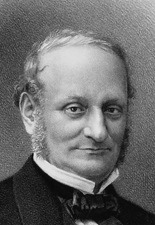
Wolowski on property as a sacred right which is an emanation from man’s very being (1863)
Found in: Cyclopaedia of Political Science, Political Economy vol. 3 Oath - Zollverein
The Polish-French political economist Louis Wolowski (1810-76) argues that matter is transformed by human action and willpower into “property” which is like a sacred extension of their person:
Property Rights
Everywhere a powerful hand is divined which has moulded matter, and an intelligent will which has adapted it, following a uniform plan, to the satisfaction of the wants of one same being. Nature has recognized her master, and man feels that he is at home in nature. Nature has been appropriated by him for his use; she has become his own; she is his property.
This property is legitimate; it constitutes a right as sacred for man as is the free exercise of his faculties. It is his because it has come entirely from himself and in no way anything but an emanation from his being. Before him, there was scarcely anything but matter; since him, and by him, there is interchangeable wealth, that is to say, articles having acquired a value by some industry, by manufacture, by handling, by extraction, or simply by transportation. … The producer has left a fragment of his own person in the thing which has thus become valuable, and may hence be regarded as a prolongation of the faculties of man acting upon external nature. As a free being be belongs to himself; now, the cause, that is to say, the productive force, is himself; the effect, that is to say, the wealth produced, is still himself.